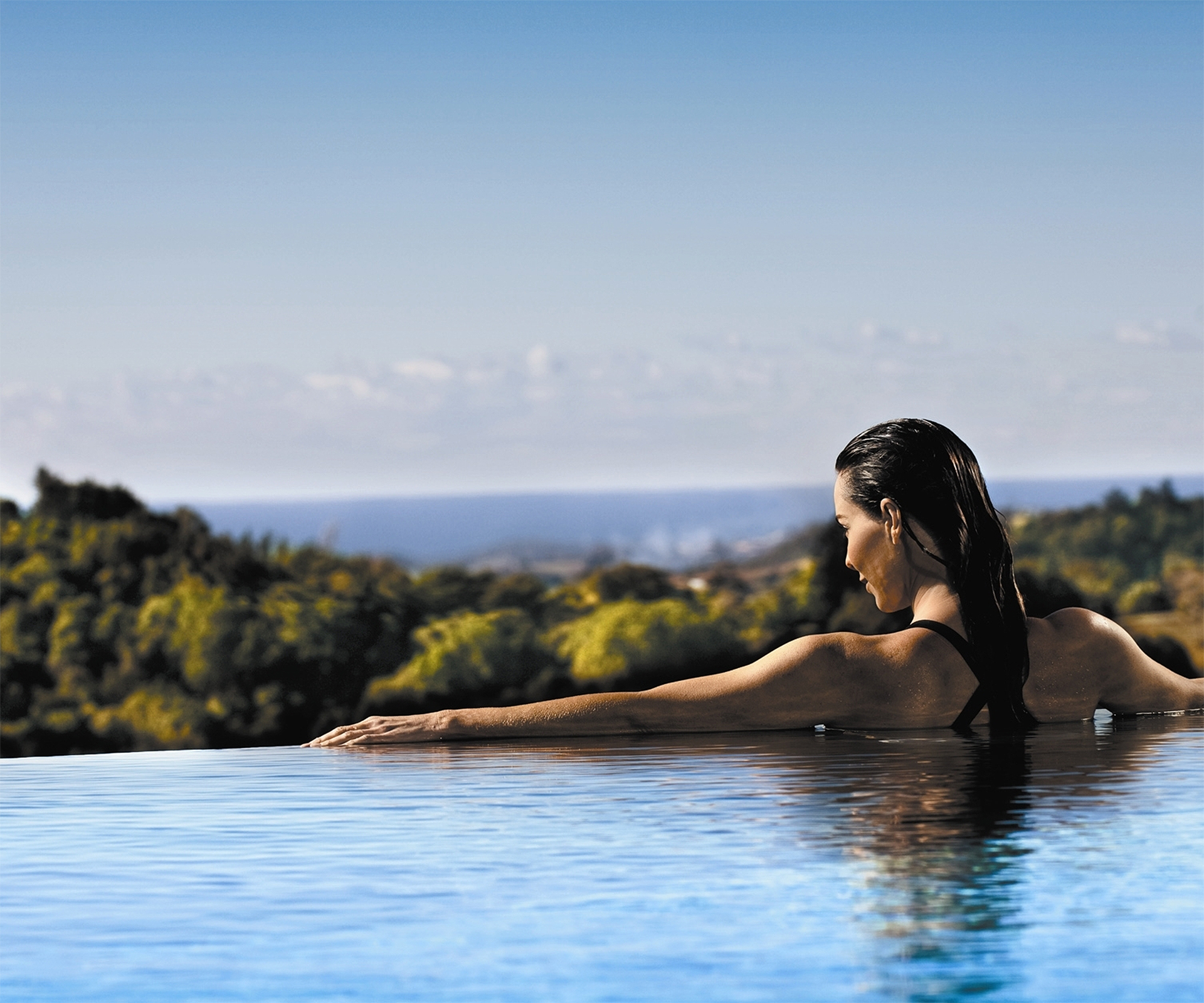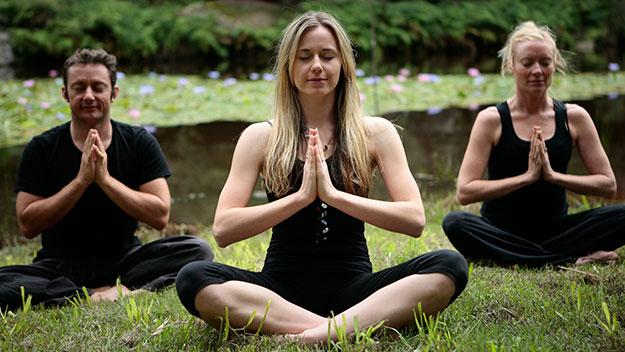THE number one way to alleviate anxiety, insomnia or everyday stress is so readily available it seems almost irritatingly simple.
Scientists estimate we will take 300 million breaths in a lifetime and yet most of us do it unconsciously and only remember when we become stressed or scared.
Andy Kidd is an expert on breathing after a career devoted to yoga and meditation. Educated at Eton, an exclusive school in England, he has the accent of an aristocrat and the demeanour of the Dali Lama.
“Breathing is central to everything about life and yet people ignore it and they focus on money, career and cars and everything else and then they have backaches, anxiety and insomnia and everything else,” he says from the Gwinganna Lifestyle Retreat in the hinterland overlooking the Gold Coast in Queensland.
Andy teaches anxious people to consciously focus on their breathing in order to still the mind because he believes regular practice will help alleviate all those nagging symptoms of our modern life.
“I think it works physiologically because breathing is the only part of physiology that is both voluntary and involuntary, so it spans the conscious and the unconscious mind, which in the nervous system is described as the sympathetic and parasympathetic nervous system.
“Therefore breathing reflects your state of nervous system or state of mind and when your anxious you tend to shallow breath with the shoulders and probably quicker. When you are calm and relaxed you tend to breathe more deeply and slowly. So the breath reflects the state of your mind.”
Andy argues that because breathing is both voluntary and involuntary, it can work like a manual override to what’s going on in your body because you can choose to change your breathing.
So by just by breathing “properly”, which means deeply and slowly for a few minutes, you can calm your nervous system.
“You calm down, it’s like shifting gear from ‘fight or flight’ to ‘rest and digest’ or from parasympathetic to sympathetic and therefore it’s a really good strategy to avoid panic.”

Gwinganna Resort, via their website.
Good breathing is both a prevention and a remedy. In a beginners’ class at Gwinganna, Andy teaches people to lie down on their back and place their hands low on their stomach and begin by just feeling your stomach rise and fall.
He then encourages you to force your stomach to extend with each breath. Next, he asks you to try to force out your rib cage and, as you do, feel the tension shift in the tiny muscles that hold it together.
In no time you feel relaxed and focused on something completely different from the things that would normally be racing through your mind. He pushes further, counting from one to six, getting his class to breathe in and out to the beat. It’s easy and the class is as one to his hypnotic voice.
Andy insists a few weeks of practising can form a habit of slow deep, efficient breathing and thus you are not as likely to get into a state of panic and worry.
“You can learn the principle in an hour. That’s not hard. But then I would hope each person would do it daily for a couple of weeks or more and I think that should be enough to start a decent habit.
“The body prefers breathing in an efficient way so when you remind it, it quickly catches on. The habit forms quite fast.”
There is a lot of overlap with meditation, which science has proved to have considerable mental and physical benefits in the same way as yoga can also be meditative and useful for learning about breathing.
“What I find easier is to meditate on the breath without trying to breathe, let it happen involuntarily and when you bring your conscious attention to your involuntary breath, it is even easier. And if you sustain that awareness for even a few minutes, your mind drops into a deeper state.”
He says this technique is ancient Buddhist teaching and he believes many meditation experts tend to overcomplicate it.
Thankfully, however, Andy says that none of that is necessary – simply slowing down your breathing, breathing deeply and remembering to do it often is enough for much the same health benefits.
Andy Kidd conducts Breathe and Relax, a two-day retreat at Gwinganna Lifestyle Retreat in Queensland.
The writer was a guest of the retreat.


